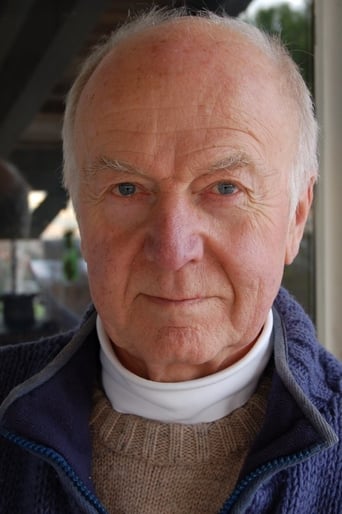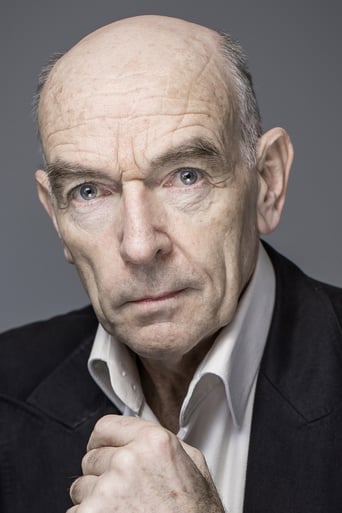Tedfoldol
everything you have heard about this movie is true.
Teddie Blake
The movie turns out to be a little better than the average. Starting from a romantic formula often seen in the cinema, it ends in the most predictable (and somewhat bland) way.
Sienna-Rose Mclaughlin
The movie really just wants to entertain people.
Darin
One of the film's great tricks is that, for a time, you think it will go down a rabbit hole of unrealistic glorification.
Red-125
"Sense and Sensibility" (1981) is a BBC mini-series directed by Rodney Bennett. The basic plot of Jane Austen's novel is familiar. The Dashwood sisters are forced to leave their home because their elder half-brother inherits the estate after their father dies.Elinor Dashwood (played by Irene Richard) represents "sense." She is practical and pragmatic. Marianne Dashwood (Tracey Childs) represents "sensibility." The meaning of this word has drifted over the years. In Austen's time its meaning was closer to "sensitivity." Marianne is the romantic sister. She loves music and she awaits the man who can sweep her off her feet. Each sister finds a true love, and in both cases their love is thwarted. How they respond to their situation is what makes this a great novel. How directors respond to this great novel is also interesting. Starting in 1971, four versions of Sense and Sensibility have been brought to the screen. Three were made for television by the BBC, and the fourth was a theatrical film from 1995 directed by Ang Lee, and starring Emma Thompson as Elinor and Kate Winslet as Marianne.We have recently watched all four versions. Although this 1981 version carries a dismal IMDb rating of 6.8, we liked it the best of the four.All of the versions have high production values, and all are worth seeing. Although all the movies are based on the same novel, they are all quite different. If you had the time and inclination you could compare the four versions on many variables. For example, there are three critical male characters in the films, and at least a dozen other important supporting roles. What the directors emphasize, and how the actors respond,gives each version different strengths and weaknesses.In my opinion, Irene Richard and Tracey Childs embody the characters that Austen created better than in any other version. Peter Woodward makes the perfect John Willoughby, the romantic hero with whom Marianne is in love. It's an important supporting role, and Woodward portrays it extremely well. To me, this version looked and felt closer to Austen than any of the others.It's not clear to me why other IMDb members didn't appreciate this movie. I loved it, and I recommend it as the Sense and Sensibility to watch if you're only going to watch one version. However, all of the versions are available on DVD. Why not watch all four and decide for yourself which is the best?
screaming lady
To begin with, it took us several attempts to watch past the first 2 hours because it is so utterly boring. The acting is very dull, Marianne is a complete idiot and is very annoying, and Edward Ferrars is almost too awkward to watch. The decision not to include the youngest Dashwood sister had a very negative impact on the family dynamic - she seems to have instead been replaced by a couple of servants named Tom and Susan who sometimes have some very long appearances that don't have any relevance to the plot whatsoever. However, following the piercing, hysterical shrieks of Fanny Dashwood after she is told of Lucy Steele's engagement - which seem to last for several minutes and was very effective in rousing our attention - the story suddenly becomes far more chaotic, but certainly not dull. One memorable scene was Marianne's illness, during which she inexplicably calls for her mother to "teach me my ABC's" in her delirium. The ending seems to have been cut slightly short - perhaps BBC ran out of funding - with Mrs. Dashwood just muttering "My children"; and that's the end. In short, this is a terrible adaptation but if you can get past the first couple of hours it becomes so terrible and bizarre, it's good.
didi-5
This version of Austen's novel of love, romance, greed, and jealousy, stars Irene Richard as Elinor and Tracey Childs as Marianne. It omits completely the youngest sister (which is a shame) but manages to make more of the characters of Edward Ferrars, Willoughby, and Lucy Steele than the more modern feel version written and featuring Emma Thompson a decade later.However, the first two or three episodes are dull rather than diverting, and only when Marianne needs help and a suitor most do things get interesting. It may not have the high-profile romantic leads that the 1990s version did, but it manages to be touching and effective in the end episode.The episodic nature of this adaptation (7 parts of around 45 minutes each) doesn't really help and it leaves you thinking whether there is really enough to this tale to stretch through many episodes that don't say very much.
johnbol
I really like Jane Austen and normally i like TV-series of her work more then a movie ( i think the 1971 TV-series of Emma is great). But this series just does not sparkle. The acting is too restrained. Therefore the whole production becomes rather dull. There is hardly any humor in it. Also there is no chemistry between Elinor and Edward.Irene Richards ( Elinor ) has not done much TV / film work after this series and that should come as no surprise. Most of the actors in this TV-series are no match to the actors in the 1995 movie. I would like to see a new TV series of this novel. As for now... i'll watch the Emma Thompson movie.


